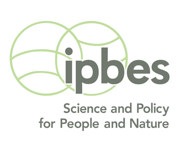IPBES
The French Foundation for Research on Biodiversity (FRB) hosts the scientific secretariat of the French Committee for IPBES. The committee’s role is:
- To promote the participation of French experts in IPBES work.
FRB works with its biodiversity expert network, representing many disciplinary fields grounded in research, practices and techniques. Experts participate in IPBES expert groups or task forces. Experts out of IPBES play a major role as reviewers.
- To support French representatives during IPBES plenaries.
FRB provides scientific and technical support to the Government for IPBES discussions since 2011, on the set up of the Platform and its procedures as well as on IPBES outputs, such as the summaries for policymakers of its assessments.
- To disseminate IPBES work at the national level, and at the regional level through cooperation with FRB’s European partners.
FRB works with its networks of researchers and socio-economic organisations, especially its Stakeholder Advisory Board, to disseminate IPBES messages that are relevant at the French level, in a relevant format designed specifically for stakeholders.

The Intergovernmental Science-Policy Platform on Biodiversity and Ecosystem Services (IPBES) is an independent intergovernmental body, established by member States in 2012. It provides decision-makers with independent scientific assessments on the status of knowledge on biodiversity, ecosystems and their benefits to people, as well as tools and methodologies to preserve and sustainably use those crucial natural resources.
The objective of IPBES is to strengthen through science the knowledge that can inform the design of better policies for the conservation and sustainable use of biodiversity, long-term human well-being and sustainable development. To some extent, IPBES can be compared with the Intergovernmental Panel on Climate Change (IPCC), the first one working on biodiversity and the latter on climate change.
More information : www.ipbes.net
The work of IPBES can be broadly grouped into four complementary areas:
- Assessments: On specific themes (e.g. “Pollinators, Pollination and Food Production”); methodological issues (e.g. “Scenarios and Modelling); and at both the regional and global levels (e.g. “Global Assessment of Biodiversity and Ecosystem Services”).
- Policy Support: Identifying policy-relevant tools and methodologies, facilitating their use, and catalyzing their further development.
- Building Capacity & Knowledge: Identifying and meeting the priority capacity, knowledge and data needs of IPBES member States, experts and stakeholders.
- Communications & Outreach: Ensuring the widest reach and impact of IPBES work.
More information : www.ipbes.net
Africa is a biodiversity-rich continent with many different ecosystems, on which people rely much. IPBES and its work on the contributions of biodiversity and ecosystem services to sustainable development and human well-being aim to support African Governments and the regional institutions to address the challenges of biodiversity loss, ecosystem degradation and sustainable development.
African organisations requested FRB to support them to build capacity for biodiversity governance, especially to enhance the participation of French-speaking African countries into IPBES work. The challenge they face comes from the language barrier, English being the working language of the Platform. FRB thus supports the use of French language in IPBES work, as an official UN language. FRB also shares with these countries its experience in operating national committees for IPBES, and supports National Focal Points and researchers in African countries so that they can work towards similar coordination at the national level.